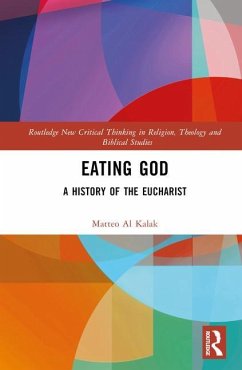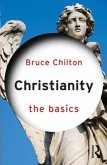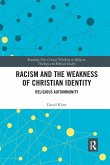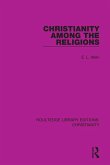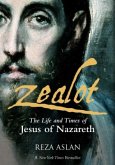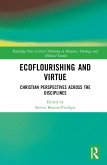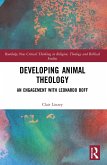Eating God examines the history of the Eucharist as a means for understanding transformations in society from the late Middle Ages onwards. After an introduction on the sacrament from its origins to the Protestant Reformation, this book considers how it changed the customs and habits of society, on not only behavioural and imaginative levels, but also artistic and figurative level. The author focuses on Counter-Reformation Italy as a laboratory for the whole of Christendom subject to Rome, and reflects on how, even today, the transformations of the modern age are relevant and influence contemporary debate. This book offers an innovative path through the history of a sacrament, with consideration of its impact as an 'object' that was used, venerated, eaten, depicted and celebrated far beyond the sphere of liturgical celebration. It will be particularly relevant to those interested in cultural history and the history of Christianity.
Bitte wählen Sie Ihr Anliegen aus.
Rechnungen
Retourenschein anfordern
Bestellstatus
Storno

